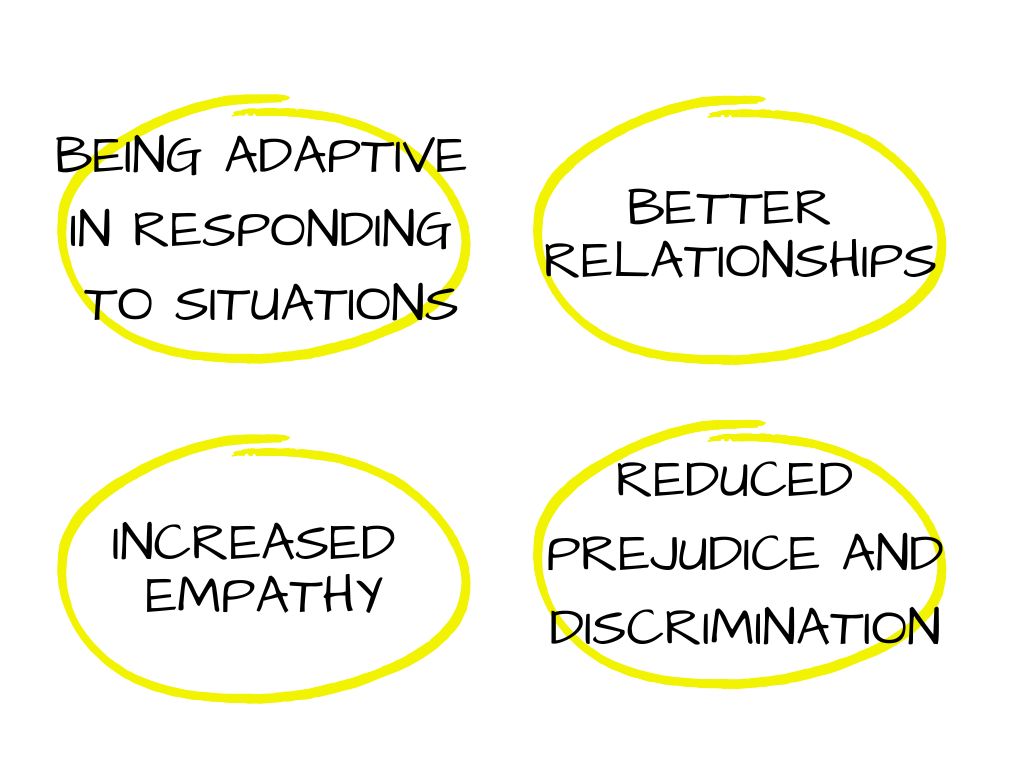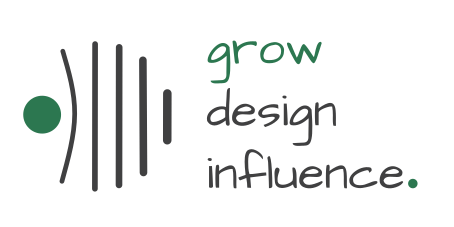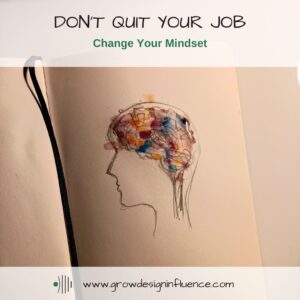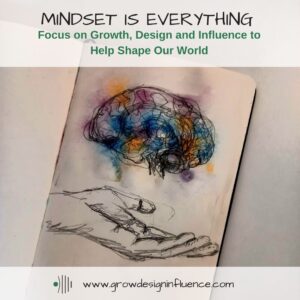
‘Why it’s important to know your self-worth’ is a vulnerable topic for me. I also feel it’s such an important one because it’s taboo, especially in relation to work. When we aren’t talking about something it usually means we need to!
I want to start by defining what self-worth is, and then explore how it affects different aspects of your work life as a design professional. I also want to give you some resources because knowledge is power when you start taking action on it. I’m not an expert on this topic but I am someone who has suffered from low self-worth and has managed to improve it so much that it has changed my life.
What is self-worth?
Cambridge dictionary simply defines it as1:
“the value you give to your life and your achievements”
If it’s something you are giving (that’s a verb or doing word), then you are in control of it. You can change what you give value to by changing the way you think about things. Don’t get me wrong, changing your thoughts and your beliefs is no easy feat. When you know and define your own self-worth you are not leaving it up to someone else to interpret for you.
The Science
As I read some of the scientific literature on self-worth it became clear that it means different things to different people. For example, some people measure self-worth against appearance, some on social status, some on approval of others, and some on career success.2
According to another study3 self-worth is derived from many aspects and is different for different people, but can include:
- Evaluations of one’s competencies
- How one compares their skills to those around them
- Approval and acceptance of others
- Affection from others
- Appearance
- Religion
- Virtue
Self-worth has been shown to influence:

This same thesis cautions against putting too much emphasis on growing self-worth because there is a risk of focusing on this and therefore losing sight of long-term goals such as health or learning. As a way to gain the benefits that higher self-worth can achieve, it is suggested that the focus is on beliefs. Beliefs are less at risk of being crumpled by negative feedback or getting poor results in a test. This involves believing that you are (or a part of you is) worthy and valuable no matter what. The benefits of this belief include:

Use of the science
It’s interesting to know that different people have different influences when it comes to self-worth, so a useful exercise would be to know and understand your own influences and triggers. This ties into shame and for more information check out my book recommendations below.
My focus for this article is going to be on what self-worth impacts and the benefits of believing yourself to be worthy and valuable. I have chosen this focus because I believe it will help you most in your design career.
Self-Worth at Work and Some Reverse Engineering
We established that self-worth is linked to your relationships, motivation, attitudes, and persuasion. I want to explore these themes because from my experience I was able to reverse engineer this and adopt the belief that I am worthy.
Relationships
In my experience the relationships you develop at work make a huge difference to your happiness and success at work. It can affect team culture, the success of a project team and the outcomes of projects (based on levels of trust between the client and project team). I have found that when I feel like I can effectively collaborate, I get joy from the social connection but I also feel more able to innovate and come up with solutions that serve a wider purpose. Solutions that consider different perspectives and therefore serve a wider community.
In my quest to become my best self, relationships have been one of the more recent topics that I took an interest in. I didn’t even think about it as being something one can have huge control over.
Recently, I have found that a useful way to approach relationships is through a lens of compassion and curiosity. I seek to understand why people say and do certain things, to be gentle, and to listen. Even if you don’t see eye to eye with someone you can lean in and show compassion to whatever they might be dealing with. I believe that whatever is expressed by someone is a reflection of what is going on on the inside. I am finding that as I improve my relationships, I feel better about myself, and the belief that I am worthy grows.
Motivation
During my career, I have experienced a spectrum of motivation, from not wanting to get out of bed in the morning to excitedly looking forward to Monday so that I can continue working towards my goals. When I didn’t want to get out of bed, I was experiencing very low self-worth and felt trapped in a situation where I had nothing to offer. The good news is that I was able to reverse-engineer this.
I found my motivation and therefore my worth by getting clear on my values and my unique strengths. I have covered values in a previous article, so check this out if you think it might help. To get clear on your strengths there are lots of online tools. Get searching the internet to find one that you like and which has good reviews. I used Clifton’s Strength Assessment.
Once I had this sorted, I saw a huge change in how I was feeling but I didn’t stop there. I kept reading and learning about self-development and step by step I found ways to develop my knowledge, take action on that knowledge and change my internal thought patterns. I set goals that were extremely meaningful to me and I started achieving them through consistent action.
I believe finding your motivation is critical to changing your self-worth beliefs.
Attitudes
An attitude is “a feeling or opinion about something or someone or a way of behaving that is caused by this”5:
Whilst the science above talks about self-worth influencing attitudes, from my experience it happens the other way too. What you think and feel about something or someone has a huge impact on your self-worth.
For example, imagine you think that the number of possessions you own shows how much value you contribute to society because it indicates how much money you have earnt. You are going to have low self-worth when comparing yourself to those around you who have more possessions.
If you can turn that around by giving meaning to your own values, your own feelings (not those of others) and your own opinions then it feels different. It becomes intrinsic and no longer based on societal pressures and social norms.
Action
After getting clear on your values and strengths (see motivation above) write down your attitudes, feelings and beliefs. The following questions might help:
- In what areas do you seek approval from others?
- What opinions do you hold of those around you?
- What’s important to you and why?
- Do any of these thoughts threaten your self-worth?
- Could you think about them differently?
Persuasion
I was the world’s worst decision-maker. Seriously! Someone would ask me – do you like your food spicy or mild? I would say medium. Not because I particularly liked medium but because I was evading deciding what I actually wanted by going somewhere in between. I applied this approach to everything and would go through my life pleasing everyone because then I would not have to decide what I actually wanted. I became very good at evaluating everybody else’s wants and needs and finding the very best middle ground. If someone told me I should change something, I would change it, no questions asked because I was sure they must be right. This came from low self-worth. I didn’t even know what I thought was right. I was so easily persuaded.
This can be turned around. Once I became aware that I was not factoring in my own opinion and feelings I was able to start thinking about it. I practised forming an opinion, understanding how I was feeling and using my voice. Recognising this helped me build a belief that I am worthy. Today I still get thrown by critical feedback but I can bounce back so much more quickly and I can take that feedback on board without sacrificing what’s important to me. I see it as an opportunity to grow. Most importantly I can use my skills and offerings to persuade and contribute to helping others.
Why it's Important to Know Your Self-worth
Having a belief that you are worthy and valuable, at least in part, can increase adaptability, reduce prejudice and discrimination, increase empathy and again improve relationships. This is exciting in terms of your impact as a design professional. It gives you a tool which you have full control over. You can work on yourself and thereby not only improve your own life satisfaction but make the world a better place.
Adaptability
To me, adaptability is the ability to hold your core values with confidence and to work with others to solve problems that work for everyone. It is taking and giving feedback, it is innovation and change, and it is bravery. If you can know who you are and what you stand for, you can work with others to build a solid foundation.

In this image, a circle represents someone’s core, someone’s self-worth. There are some that are unable to get close to others because they have put up defence walls, scared of threats. Others are out of shape because there are unknown blind spots. It would be very difficult to build a solid foundation.

Here the cores are solid, strong, and complete. They are comfortable adapting and working together and therefore build a strong foundation.
If you apply this analogy to a design project where we have different people working together to solve a problem, you can see that if we know what our core values are and who we are, and accept this, we can learn from and accept others. This results in a solution that is much stronger because we are able to work together.
Prejudice and Discrimination
I didn’t expect to be writing about prejudice and discrimination when I started this article but it follows perfectly from my last sentence. I feel out of my depth with this topic but it’s such an important one. My gut instinct was to shy away because of fear to get it wrong. Instead, I’m taking the risk because I believe we all need to lean in. I rewrote this section 5 times!
I know that I write this from a place of complete privilege but perhaps by taking away some of the power from societal norms, by improving our own inner worlds, we can have some positive impact.
I believe the world is better because we are all different. We can learn from each other and live richer and more meaningful lives. No human is perfect so let’s learn from and use the best of us all. I’m currently living in Germany away from my family, friends and familiar environment but it has changed my life for the better in so many ways. I can empathise more, I understand the global issues better, it challenged me hugely and I had to grow and adapt and learn new ways to be.
We are all human and we are in many ways all the same. This is as true as knowing we have many differences. We are in this life together and we feel the same basic human emotions.
I’m fascinated that when our self-worth is low then it has negative outcomes in the area of prejudice and discrimination. I assume we go into protection and self-preservation mode. We see this in an extreme way in war. We are living in a world where resources are under threat, where there is suffering, and where we need to come together in a way that every person thrives. Every person deserves to live happily and we deserve a society where we take care of each other. By accepting and working on ourselves, we can accept others, and we lay the path for a better world. A world where we are going to make it through the challenges ahead.
Empathy
I’ve written a whole article on the importance of this topic. Check it out here.
In relation to self-worth I believe when we are able to look outside ourselves and focus more on others, we feel smaller / less important in a good way. We shift our thoughts towards compassion and we become more accepting of ourselves as well as of others. We can only do this when we know who we are. That enables us to look out from inside our internal world and to give our attention to others.
Resources for Change
Coaching
I offer coaching to design professionals who want to improve their impact. I focus on goal setting and helping people see things differently. By changing your inner world and by building a belief that you are worthy, you can improve your life satisfaction, increase your earning potential and have more impact at work. Come on over to our coaching page to find out more.
Book Recommendations
Disclaimer: This post contains affiliate links. If you choose to purchase something after clicking a link, I may receive a commission at no extra cost to you (learn more). Thanks for your support.
Here are some of my favourite books on the topic of self-worth.
I hope this has been of help. Please comment below and let me know!
And one last thought about why it’s important to know your self-worth. If you don’t know your self-worth then somebody else will define it for you and you might not like what they come up with. So take back the power and own the good you bring to this world.
Book Your Free 30-minute Consultation
- Cambridge Dictionary. (n.d.). Self-Worth. In Cambridge Dictionary. Retreived August 15, 2022
- Yusoff, N. M., Norhamdani, N. ‘Aziemah, Muhammad, R., & Sudono, A. (2022). Employees’ Self-Worth: Psychological and sociological factors influencing job satisfaction. Environment-Behaviour Proceedings Journal, 7(19), 385–391.
- Crocker, J., Luhtanen, R., Cooper, M., & Bouvrette, A. (2003). Contingencies of Self-Worth in College Students: Theory and Measurement. Journal of Personality and Social Psychology, 85, 894–908.
- Matthews, M. A. (2021). Core Worth [Master's Thesis, Ohio State University]
- Cambridge Dictionary. (n.d.). Attitude. In Cambridge Dictionary. Retreived August 16, 2022







